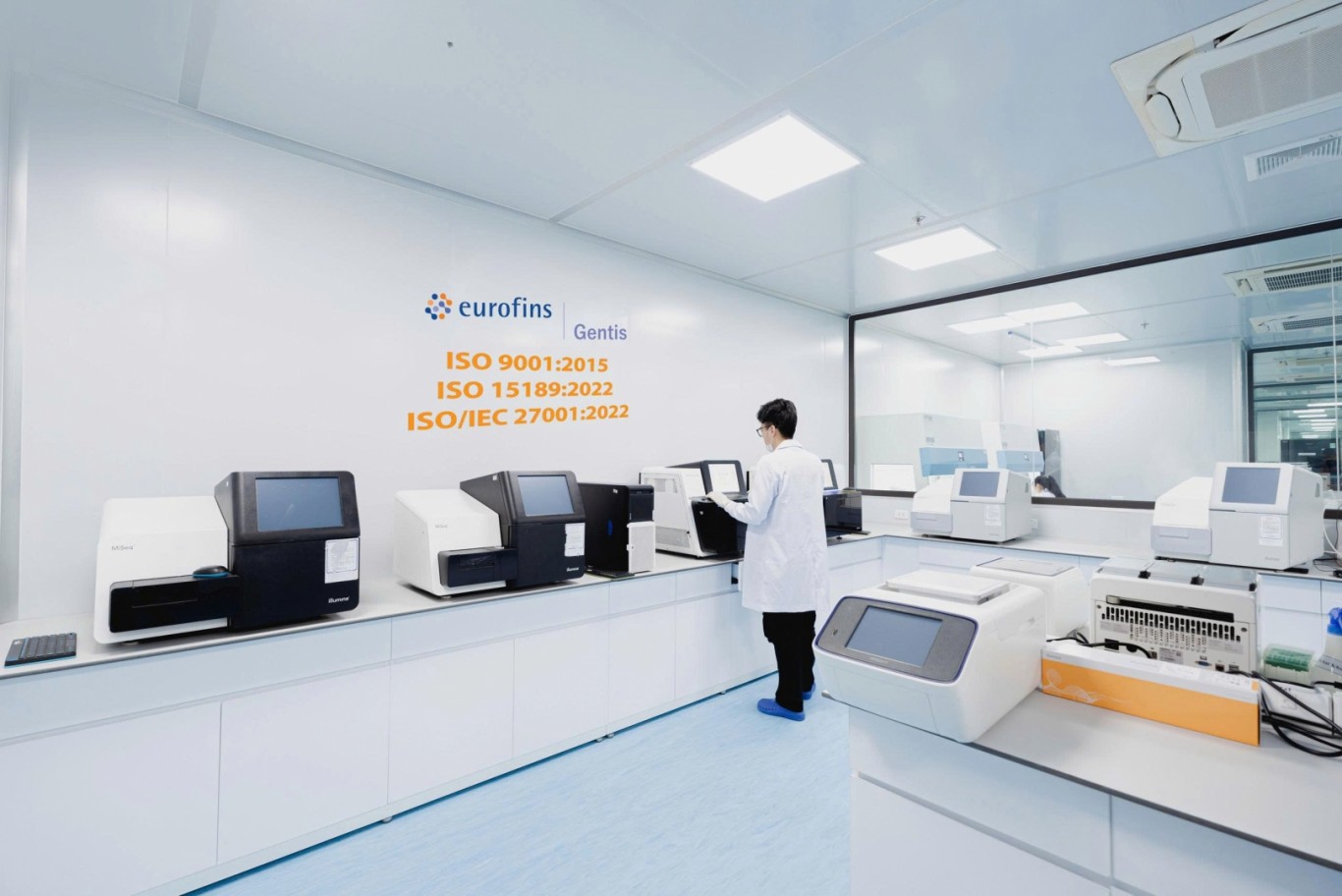
3 types of PGTest tests commonly used today
PGT-A (Preimplantation Genetic Screening for Aneuploidy)
PGT-A is a preimplantation genetic analysis test that helps detect abnormalities in the number of chromosomes in the embryo. Chromosomes are genetic materials containing DNA. The number of each type of human’s chromosome is 2. When the number of chromosomes changes, it can impede the embryo from developing, consequently failing to be implanted in the uterus, or can cause Down, Turner, Klinefelter Syndrome,...

PGT-SR (Preimplantation Genetic testing for structural chromosomal rearrangements)
PGT-SR is an evaluation test for abnormalities caused by chromosomal restructuring. The PGT-SR test can detect chromosomal abnormalities caused by non-reciprocal translocation, Robertsonian translocation and inversions.
PGT-M (Preimplantation genetic testing for monogenic/single gene defects)
PGT-M is a preimplantation genetic analysis test that detects diseases due to single-gene disorders.
In which circumstance should the PGTEst be applied?
PGT-A
PGT-A is a preimplantation genetic test aiming at identifying aneuploidy abnormalities, which can be deployed to screen aneuploidy types relating to any chromosome. PGT-A should be commonly indicated to:
- Expectant mothers aged > 37 years old.
- Multiple IVF failures or successive miscarriages.
- Family history of children born with quantitative abnormalities of chromosomes.
- The husband is diagnosed with severe infertility (AZF deletion).
.png)
PGT-SR
PGT-SR is often applied to couples with chromosomal structural abnormalities such as chromosomal non-reciprocal translocation, chromosomal deletion or duplication.
In case one or both parents have syndromes related to chromosomal structural abnormalities such as: Angelman, Cri du chat, DiGeorge, Langer – Giedion, Miller – Dieker, Prader – Willi, Smith – Magenis, Williams – Beuren, Wolf – Hirschhorn...
PGT-M
Spouses carry genetic mutations that cause diseases: Thalassemia, Myeloid atrophy, cystic fibrosis,...
The wife carries the sex chromosome X-linked gene mutation (Hemophilia, Duchenne muscular dystrophy...)
PGT-M is a diagnostic test for monogenic diseases that is often recommended for cases such as parent or both parents carrying monogenic genetic mutations such as chromosomal disorders, congenital hemolytic disease Thalassemia, Duchenne muscular dystrophy, congenital adrenal hyperplasia, etc.
Reasons that couples should take the PGTest test
Increase in the success rate per transfer attempt: Choosing embryos that do not have an abnormal number of chromosomes can increase the pregnancy rate after embryo transfer.
Reduction in miscarriage rate: In the general population, 25% of all clinical pregnancies end in miscarriage. The risk of miscarriage will be reduced if the embryo does not have an abnormal number of chromosomes (euploids) transferred.
Reduction in the risk of multiple pregnancies: Patients can confidently transfer an embryo that has been tested for chromosomes and not have an abnormal number of embryos instead of transferring multiple embryos that have not been tested for chromosomes, which reduces the risk of multiple pregnancies.
Increase the likelihood of having a healthy baby: Some pregnancies with aneuploid fetus can lead to the baby being affected in relation to chromosomal syndromes (e.g. Down syndrome).
Less time and resources needed: The time and resources required to achieve a pregnancy are reduced.
GENTIS - The agency that performs accurate and reputable PGTest testing
GENTIS with more than 13 years of operation in the field of obstetric-assisted testing is considered capable of performing PGTest testing techniques accurately and professionally.
GENTIS testing center is strongly invested in facilities, modern equipment systems, imported from famous technology companies in the world. The entire operation process of GENTIS Testing Center is accredited by ISO 9001:2015 and ISO 15189:2012 standards.
.jpg)
At GENTIS, we gather a team of highly specialized experts, doctors, and technicians with many years of experience in the field of assisted reproduction and especially in the technique of performing PGTest tests.
With the desire to improve the health quality of Vietnamese people, GENTIS always tries day by day, to actively improve service quality, and diversify reproductive support products to serve the community. GENTIS hopes to bring more good news to infertile couples looking for children.











